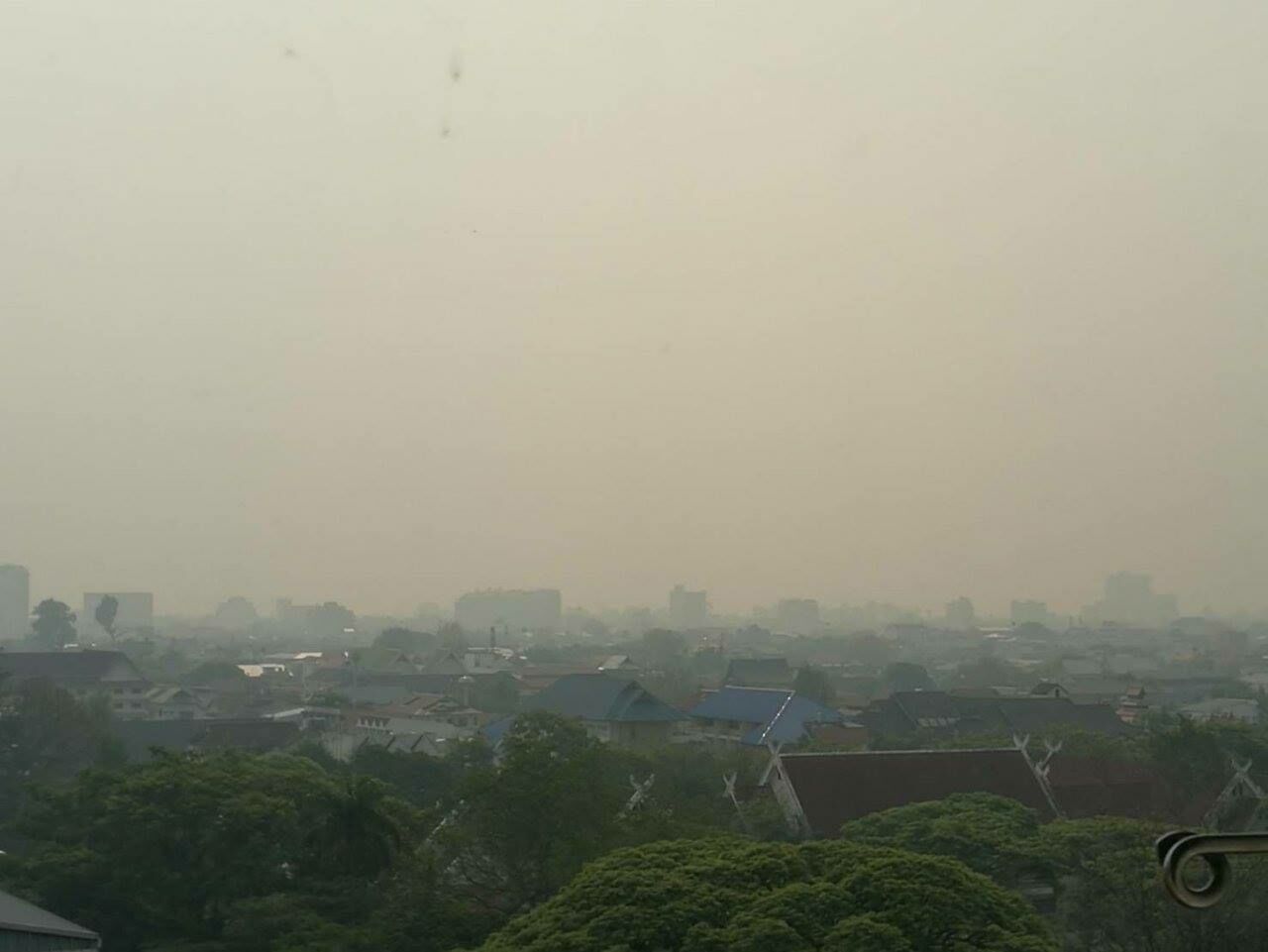Thailand’s northern regions to experience decrease in air pollution due to rainfall

Air pollution in Thailand’s northern regions is expected to decrease between tomorrow and Monday due to rainfall, bringing relief to an area where over 2.4 million people have experienced health problems connected to smog, according to the Public Health Ministry.
Dr Opas Karnkawinpong, the public health permanent secretary, reported yesterday that the PM2.5 levels detected in the north ranged from 48 to 234 microgrammes per cubic metre (µg/m³). The most hotspots were found in Chiang Mai, with 279, followed by Chiang Rai, with 215 and Nan with 115.
In the past three days, eight provinces experienced PM2.5 levels exceeding 51 µg/m³. These provinces included Nan’s Muang and Chalerm Prakiat districts; Chiang Mai’s Muang, Chiang Dao, and Mae Chaem districts; Chiang Rai’s Muang, Mae Sai, and Chiang Khong districts; Phrae’s Muang districts; Phayao’s Muang district; Lamphun’s Muang and Li districts; Lampang’s Muang and Mae Mo districts; and Mae Hong Son’s Muang, Mae Sariang, and Pai districts.
The weather conditions in Bangkok and nearby provinces are predicted to improve by Monday, with the wind easing the dust levels. However, 17 northern provinces, particularly Chiang Rai and Nan, still require close monitoring. Improvement has been observed since yesterday, thanks to increased wind speeds in the region’s upper areas, and rain is expected in parts of the north from tomorrow until Monday.
Dr Opas revealed that if PM2.5 levels surpass 150 µg/m³, these areas will be designated red zones and village heads will be informed four times daily, at 7am, 12pm, 3pm, and 6pm. Tambon health promotion hospitals will deploy health teams to offer initial healthcare and online clinics.
Three village health volunteer teams have been dispatched, and medical supplies, including 122,000 N95 masks, have been sent to Area Health 1 and an additional 50,000 masks to Area Health 2. The combined number of patients affected by air pollution stands at 2.47 million cases, with 184,465 new cases recorded last week.
Many of these patients have respiratory issues, while others suffer from dermatitis and eye diseases. The most common symptoms are nose irritation (34.23%), coughing (24.32%), and eye irritation (20.72%), Dr Opas said.
An air quality check yesterday showed PM2.5 levels above the 50 µg/m³ threshold in 30 provinces. Air pollution in the north ranged from 43 to 211 µg/m³, while Bangkok and its adjacent provinces experienced levels between 33 and 66 µg/m³.
Latest Thailand News
Follow The Thaiger on Google News:


























